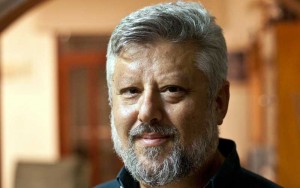Consistent Stress—Unpredictable Consequences
Over coffee, books opened and stacked in front of me, I sit chatting with two of my classmates. While we had all arrived to Eckstein an hour before class to discuss an assignment, we quickly concurred that we just needed a break and instead used the hour to unwind and share how our days had been.
Within that conversation, it became clear that not only were we stressed, but we had become stressed about our level of stress. Our sources of stress varied from our school work, extra-curricular activities, families, relationships, over-scheduled calendars, health, futures, jobs, as well as finances. In each realm, we were all trying to do our best to keep all the balls up in the air–not just off the ground, but high in the sky.
Blogging about stress, even as it relates to law school, is not breaking news. But in the midst of exam preparations, I am stopping to ask myself, “Why are we not as dedicated to our well-being as we are to being law students?”
Instead of framing our success and status by our identity as law students and lawyers, worried about grades, extra-curricular activities, victories and billing hours, we should seek to balance this one dimension of our lives with all the other elements that we push to the back burner. Building a balanced life requires making a conscientious choices, and the consequence of not doing so can be self-defeating and counterproductive.
In speaking with fellow students, I have found empathy for this stressful state and also healthy mechanisms for coping. Isabelle Faust, a part-time 1L in her second year of the program, noted that when she is stressed, she feels twitchy, anxious and as though she cannot control anything because it is all moving too fast. These are only some manifestations of stress. Other indicators include: insomnia, lack of concentration, irritability, over-consumption, ulcers, and high blood pressure, among other unpleasantness.
Trace Hummel, a 2L, noted, “I would not say there are any big barriers to reducing stress, but if there are, they are internal. I have been raised to perform at the highest level I can, and add pressure upon myself to do well. . . .Our egos can be the biggest roadblock we as individuals have and sometimes we have to let go of them to help ourselves out.”
Hummel also noted that stress can be a good motivator, but that it has to be focused by our vision of who we want to be. One suggestion he encourages is talking to others about our stress as a mechanism for cooping. This certainly can provide some relief, as I experienced with my two classmates. I will note here that the MU Counseling Center, which serves law students as well as undergraduates, is an excellent resource for discussing your stress as well as considering solutions.
Finally, like me, Gabriella Binion finds balancing her second year of law school with a job stressful at times, but she identified means to reducing her stress. She stated, “In terms of work, I try not to be afraid to ask for time off to focus on school – especially around finals time. I also try to take time for myself each week in order to better manage my stress.”
For Faust, managing stress means running and spending time with friends outside of school. Hummel makes sure that he does something unrelated to school before he goes to bed, like watching 30 minutes of TV, to take his mind off things.
These are all good short-term solutions to stress, however, one must consider the long-term solutions as well. We, as law students, tend to just to accept that the field we have selected is supposed to be this way and respond by holding ourselves to unattainable expectations. But what we do not consider is the toll this stress takes on us and how it becomes a learned pattern of behavior that follows us after graduation when we go to work.
I am writing today to not only raise awareness about the harmful and long-term impact stress can have and to advocate for striking a balance, but also to hold myself accountable to this pledge and challenge you to join me.
It may be a small change you make at first, such as I will no longer drink energy drinks or I will drink only one cup of coffee a day. Slowly these modified behaviors can evolve into bigger changes, like finding time to use the gym (it is right there on the fourth floor–clearly a resource that was deemed valuable by those who designed our school), saying no to yet another resume-building activity, or leaving the office on-time. Once this is our learned pattern, we can move towards a more balanced life with a little less stress and become healthier as well as more completely present in our multi-faceted lives.
If you agree that you need to reduce your stress and can commit to making one change, please comment on this blog post, and if you are willing, share your stress-reduction goal. Together, we can, and should, support each other towards personal wellness, balance, and healthy habits now and in the future.
Taking my own advice in this call to action, I sign-off as the student blogger for March, knocking one responsibility off my to-do list and already moving in the right direction.


